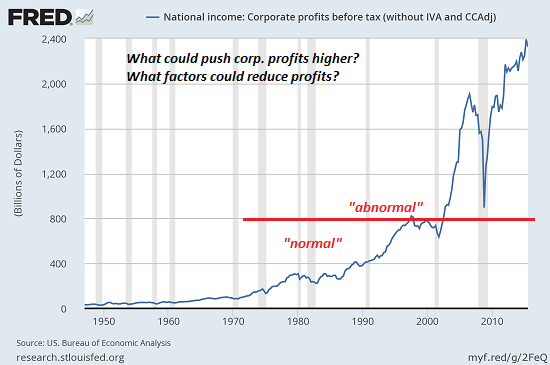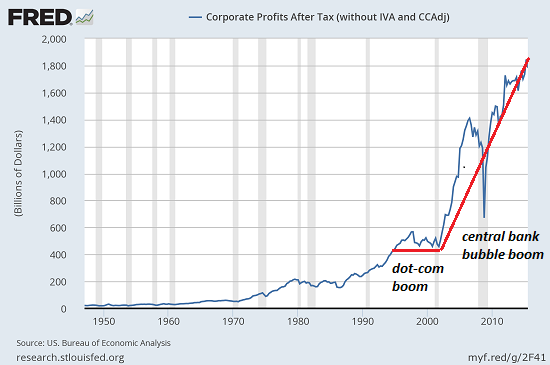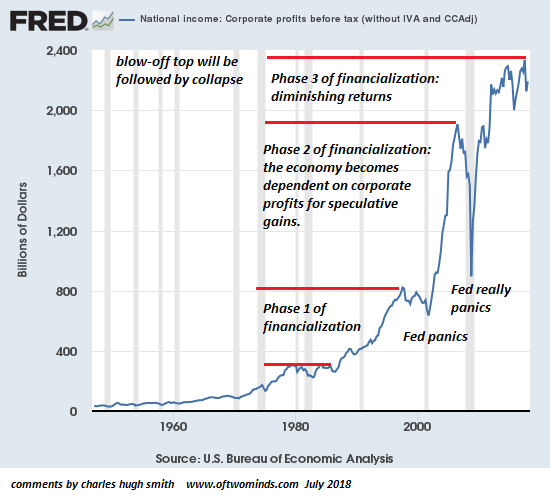We’re in the endgame of financialization and globalization, and it won’t be pretty for all the hostages of corporate profits.
Though you won’t read about it in the mainstream corporate media, the nation is now hostage to outsized corporate profits.
The economy and society at large are now totally dependent on soaring corporate profits and the speculative bubbles they fuel, and this renders us all hostages: “Make a move to limit corporate profits or speculative bubbles, and your pension fund gets a bullet in the head.”
Not just pension funds, of course; tax revenues will also be taken out and shotas most of the state and federal income taxes are paid by high-earners and those skimming capital gains from stock options and stock-based compensation packages.
Political and financial authorities have caved in to the implicit threat, lest their share of the corporate swag be tossed in the ditch. To appease public anger, various bureaucratic thickets have been created, but as you can easily see, corporate profits have not been affected.
The global downturn resulting from China’s tightening of credit in 2016 caused a remarkably under-reported panic in central banks, which pulled out all the stops to keep corporate profits high.
Subsidies, tax breaks and exclusions keep the profits flowing not just to corporate managers and owners but politicos, lobbyists and the entire food chain that serves the top of the wealth-power pyramid in America.
Notice the difference between normal and abnormal profits? The enormous speculative boom of the dot-com era doubled corporate profits in a mere decade, but those gains pale compared to the tripling in profits since the 2002 downturn:

After the dot-com bubble burst, we belatedly realized the economy had become dependent on bubbles for its growth. The panicky response of central banks revealed the depth of the dependence, and this response inflated a bubble that far surpassed the dot-com excesses.

Corporate profits have ascended through three phases characterized by advancing financialization and globalization.

The first phase of “the great moderation” and “global savings glut” (phrases deployed by the Federal Reserve) fueled the dot-com bubble.
Once that bubble popped in 2001, the Fed and other central banks panicked. Their response–lowering interest rates, unleashing unlimited credit/liquidity, etc.– inflated a monumental bubble that was further boosted by China’s admission into the WTO and the full financialization / globalization of the U.S. economy.
When this bubble predictably popped, the central banks really panicked. If we strip away the hype and propaganda, we are left with a troubling reality: there is no engine of “growth” other than speculative bubbles based on cheap credit and soaring corporate profits.
<b<>We are now drifting through the troubled waters of the third phase, the phase of diminishing returns and stagnation: the tricks of increasing liquidity to fund stock by-backs and central; bank purchases of assets are no longer goosing profits or “growth.”</b<>
We’re in the endgame of financialization and globalization, and it won’t be pretty for all the hostages of corporate profits. Giving Amazon et al. more tax breaks won’t fix what’s broken, and neither will lavishing subsidies or taxpayer giveaways on global corporations that maintain the useful illusion of being based in America.
Economies dependent on bubbles for their survival self-destruct.